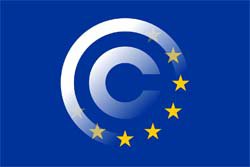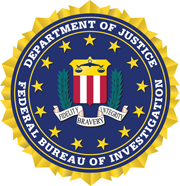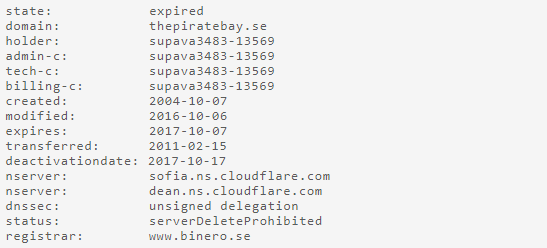Abandon Proactive Copyright Filters, Huge Coalition Tells EU Heavyweights
mardi 17 octobre 2017 à 11:02 Last September, EU Commission President Jean-Claude Juncker announced plans to modernize copyright law in Europe.
Last September, EU Commission President Jean-Claude Juncker announced plans to modernize copyright law in Europe.
The proposals (pdf) are part of the Digital Single Market reforms, which have been under development for the past several years.
One of the proposals is causing significant concern. Article 13 would require some online service providers to become ‘Internet police’, proactively detecting and filtering allegedly infringing copyright works, uploaded to their platforms by users.
Currently, users are generally able to share whatever they like but should a copyright holder take exception to their upload, mechanisms are available for that content to be taken down. It’s envisioned that proactive filtering, whereby user uploads are routinely scanned and compared to a database of existing protected content, will prevent content becoming available in the first place.
These proposals are of great concern to digital rights groups, who believe that such filters will not only undermine users’ rights but will also place unfair burdens on Internet platforms, many of which will struggle to fund such a program. Yesterday, in the latest wave of opposition to Article 13, a huge coalition of international rights groups came together to underline their concerns.
Headed up by Civil Liberties Union for Europe (Liberties) and European Digital Rights (EDRi), the coalition is formed of dozens of influential groups, including Electronic Frontier Foundation (EFF), Human Rights Watch, Reporters without Borders, and Open Rights Group (ORG), to name just a few.
In an open letter to European Commission President Jean-Claude Juncker, President of the European Parliament Antonio Tajani, President of the European Council Donald Tusk and a string of others, the groups warn that the proposals undermine the trust established between EU member states.
“Fundamental rights, justice and the rule of law are intrinsically linked and constitute
core values on which the EU is founded,” the letter begins.
“Any attempt to disregard these values undermines the mutual trust between member states required for the EU to function. Any such attempt would also undermine the commitments made by the European Union and national governments to their citizens.”
Those citizens, the letter warns, would have their basic rights undermined, should the new proposals be written into EU law.
“Article 13 of the proposal on Copyright in the Digital Single Market include obligations on internet companies that would be impossible to respect without the imposition of excessive restrictions on citizens’ fundamental rights,” it notes.
A major concern is that by placing new obligations on Internet service providers that allow users to upload content – think YouTube, Facebook, Twitter and Instagram – they will be forced to err on the side of caution. Should there be any concern whatsoever that content might be infringing, fair use considerations and exceptions will be abandoned in favor of staying on the right side of the law.
“Article 13 appears to provoke such legal uncertainty that online services will have no other option than to monitor, filter and block EU citizens’ communications if they are to have any chance of staying in business,” the letter warns.
But while the potential problems for service providers and users are numerous, the groups warn that Article 13 could also be illegal since it contradicts case law of the Court of Justice.
According to the E-Commerce Directive, platforms are already required to remove infringing content, once they have been advised it exists. The new proposal, should it go ahead, would force the monitoring of uploads, something which goes against the ‘no general obligation to monitor‘ rules present in the Directive.
“The requirement to install a system for filtering electronic communications has twice been rejected by the Court of Justice, in the cases Scarlet Extended (C70/10) and Netlog/Sabam (C 360/10),” the rights groups warn.
“Therefore, a legislative provision that requires internet companies to install a filtering system would almost certainly be rejected by the Court of Justice because it would contravene the requirement that a fair balance be struck between the right to intellectual property on the one hand, and the freedom to conduct business and the right to freedom of expression, such as to receive or impart information, on the other.”
Specifically, the groups note that the proactive filtering of content would violate freedom of expression set out in Article 11 of the Charter of Fundamental Rights. That being the case, the groups expect national courts to disapply it and the rule to be annulled by the Court of Justice.
The latest protests against Article 13 come in the wake of large-scale objections earlier in the year, voicing similar concerns. However, despite the groups’ fears, they have powerful adversaries, each determined to stop the flood of copyrighted content currently being uploaded to the Internet.
Front and center in support of Article 13 is the music industry and its current hot-topic, the so-called Value Gap(1,2,3). The industry feels that platforms like YouTube are able to avoid paying expensive licensing fees (for music in particular) by exploiting the safe harbor protections of the DMCA and similar legislation.
They believe that proactively filtering uploads would significantly help to diminish this problem, which may very well be the case. But at what cost to the general public and the platforms they rely upon? Citizens and scholars feel that freedoms will be affected and it’s likely the outcry will continue.
The ball is now with the EU, whose members will soon have to make what could be the most important decision in recent copyright history. The rights groups, who are urging for Article 13 to be deleted, are clear where they stand.
The full letter is available here (pdf)
Source: TF, for the latest info on copyright, file-sharing, torrent sites and ANONYMOUS VPN services.
 Earlier this year, a group of well-known labels targeted
Earlier this year, a group of well-known labels targeted 

 When The Pirate Bay first came online during the summer of 2003, its main point of access was thepiratebay.org.
When The Pirate Bay first came online during the summer of 2003, its main point of access was thepiratebay.org.

 This week we have two newcomers in our chart.
This week we have two newcomers in our chart.